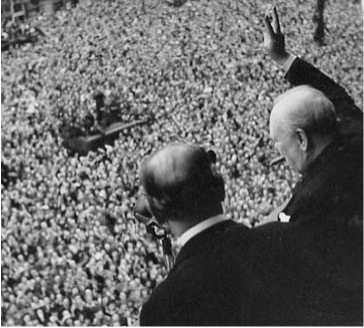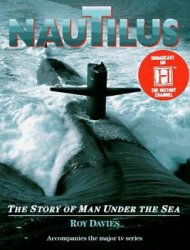
“In all our long history we have never seen a greater day than this.” With Attlee on Victory in Europe Day, 8 April 1945.
It is appropriate to begin with these famous quotations which together made Winston Churchill a household name a lifetime ago. To the greatest words of 1940 I have added several from earlier and later times which deserve inclusion, either for their lyrical beauty and emotional impact or their stark relevance to modern times.
Churchill was not always original. The late Colin Coote, who collected the first book of Churchillian expressions more than half a century ago,15 16 observed that “Nobody soaked in
History ever is [original], because, consciously or unconsciously, in any situation they remember that it has happened before, and what were the reactions on noble spirits.”
Coote added, for example, that “blood, toil, tears, and sweat” was “a direct echo of Garibaldi’s address to his followers after the defence of the Roman Republic had collapsed and he was about to start on his march across Italy”. Or again, when in his first speech as Prime Minister, Mr. Churchill defined his policy as “to make war”, he was echoing Clemenceau’s “Je fais la guerre”; and the famous passage in a later speech about fighting “on the beaches, in the hills, in the streets” recalls the same leader’s fierce declamation in 1918: “I shall fight in front of Paris, within Paris, behind Paris.”17
But nothing, as Sir Winston said, surpasses 1940. Denounced by some as purple prose, those words rallied a nation when there was little with which to fight. Ronald Golding, one of Churchill’s Scotland Yard bodyguards in 1946, was an RAF squadron leader when he first heard the famous voice, crackling over the ether on a primitive wireless. “After those speeches,” he said, “we wanted the Germans to come.”
Far away in his barracks, a young soldier named Caspar Weinberger heard the same words on American radio. “I don’t know about the others,” said the man who would become U. S. Secretary of Defense, “but I was certainly moved more completely than I had been by any speech since.”18
Perhaps these words sound like purple prose today, but I can recount many occasions when people who had heard them over crackling, surreptitious radio broadcasts in occupied Europe, would grasp the arm of Lady Soames to say how much her father’s words had meant, in those times, in that hour.
These quotations are ranged in chronological order and identified by their most famous phrase. Space precludes providing more than the highest of the high spots, but more are available in an admirable collection, Never Give In!: The Best of Winston Churchills Speeches, selected and edited by Sir Winston’s grandson; in Churchill’s own war speech volumes; and in the massive Complete Speeches, edited by Sir Robert Rhodes James.




 World History
World History





![Road to Huertgen Forest In Hell [Illustrated Edition]](https://www.worldhistory.biz/uploads/posts/2015-05/1432477693_1428700369_00344902_medium.jpeg)



